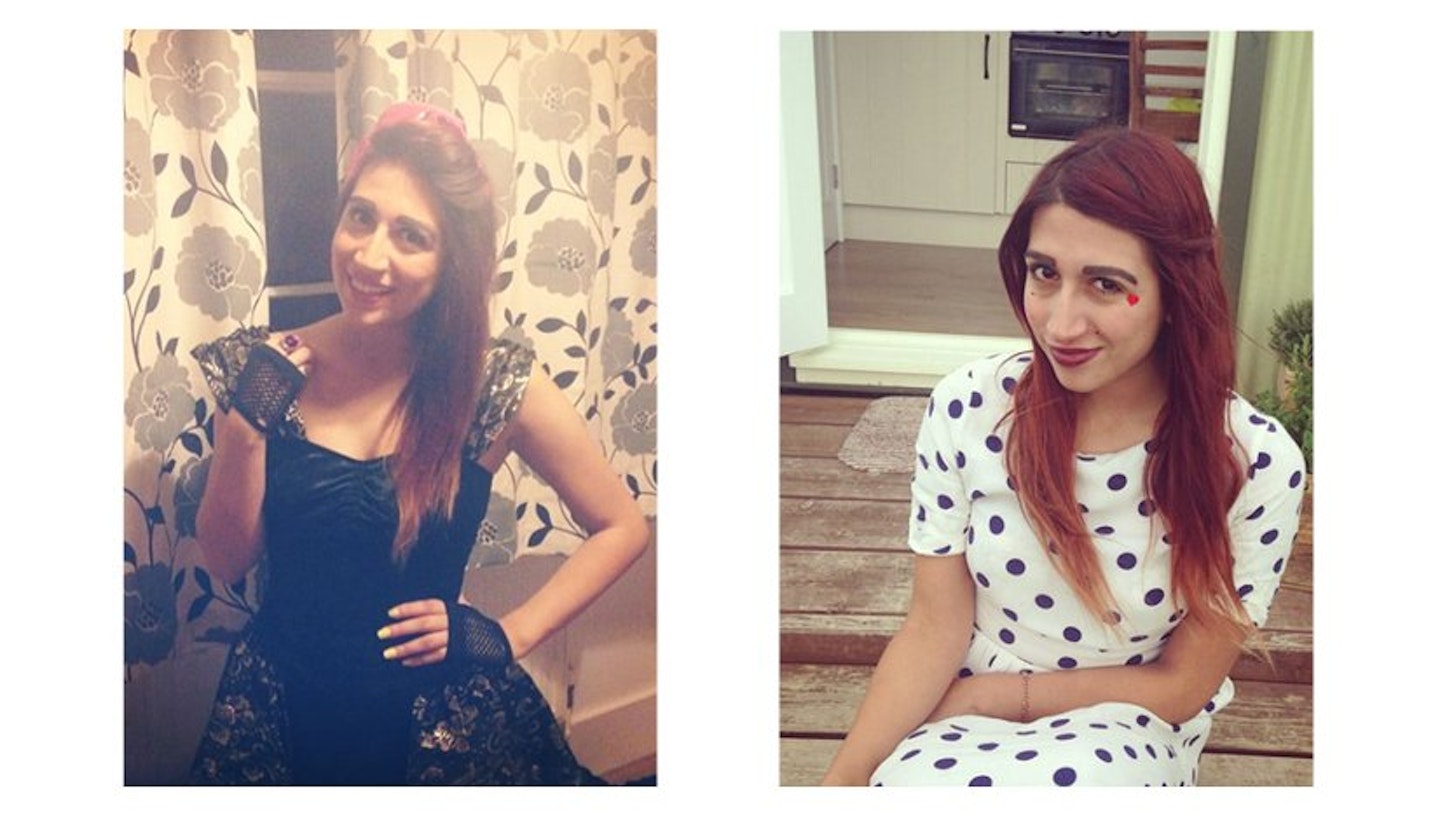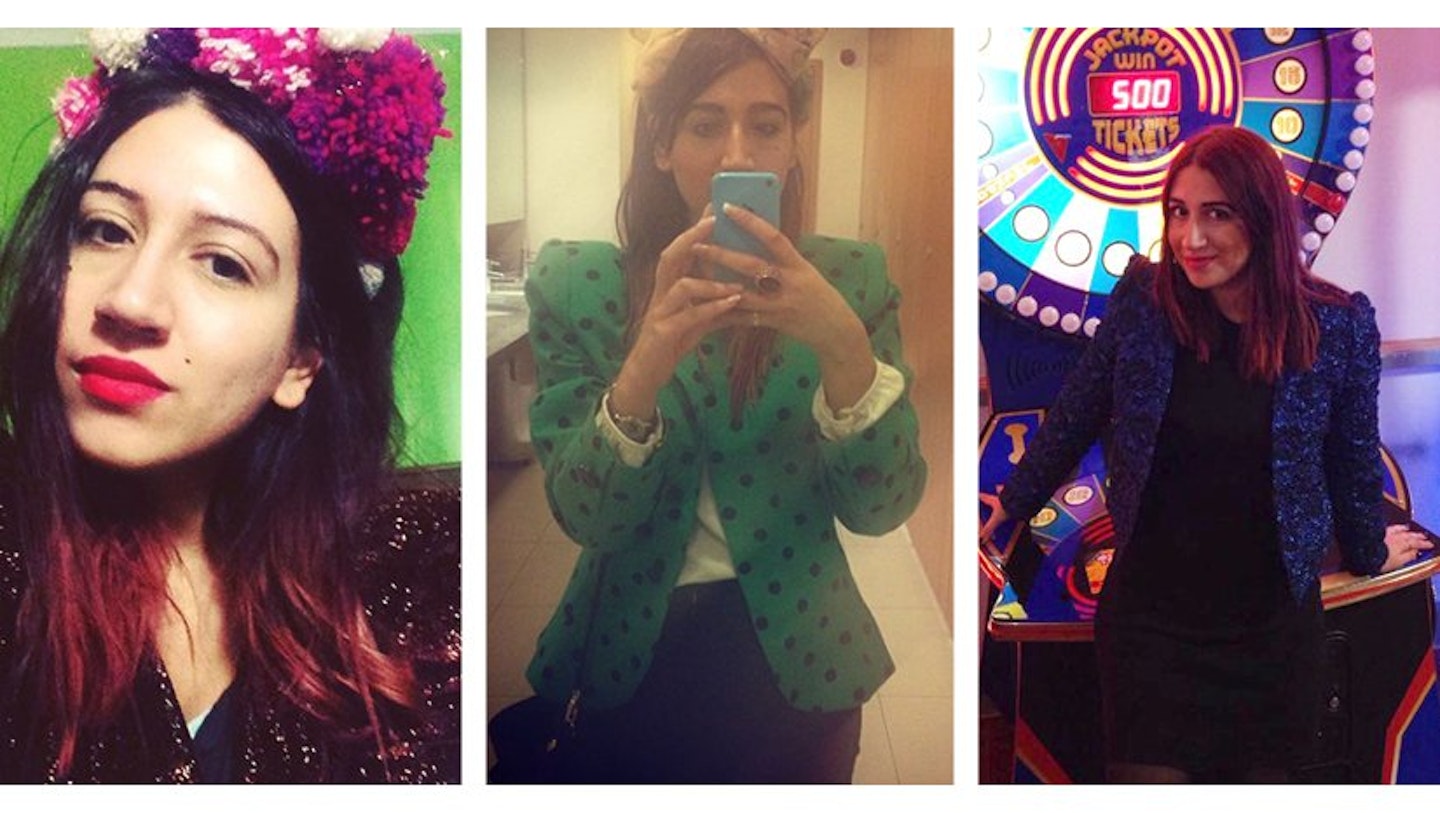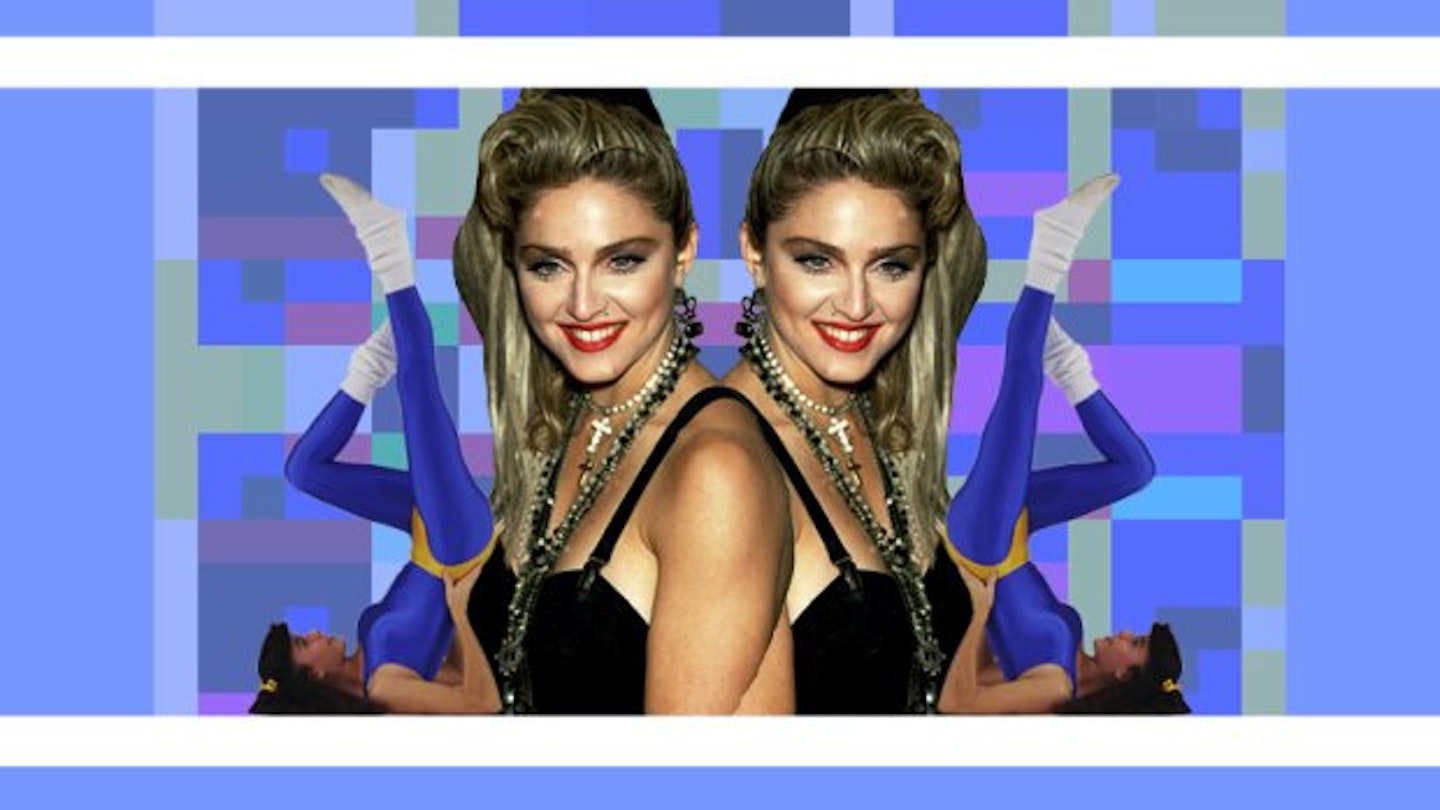I have a confession. I’m a massive fan of the eighties. My wardrobe is packed full of sparkly, shoulder-padded vintage jackets. I love watching episodes of Top of the Pops from the decade for style (and dancing) inspiration. I recently paid almost £150 to spend a weekend watching 80s synth bands at Butlin’s Bognor Regis. When I texted my mum telling her to get some advocaat so I could make snowballs for my friends when back in my hometown for Christmas, her reply was ‘well they are a very 80s’ drink, so no wonder you like them’. I’ll stop boring you now, but you get my drift.

Aside from living in the decade itself, there’s seemingly no better time to be an 80s aficionado. From TV to fashion, the decade’s influence is apparently everywhere. I wonder where this fascination – as well as my own – has come from. ‘The 80s is one of the most clearly-defined decades of the 20th century, so it’s very accessible.’ historian Dr Graham Stewart, author of Bang! A History of Britain in the 1980s, tells me. ‘In the 90s and early 00s, things like 80s fashion were widely decried, but now there’s a more nuanced appreciation for it among young people, who have an excitement for the decade and want to experience it for the first time if they weren’t born then.’
‘It’s similar to the 50s revival experienced by people in the 1980s,’ Professor Nicky Marsh, who co-ordinates the British Culture in the 1980s module at the University of Southampton, says. ‘A lot of people are looking back to what they perceive as more innocent times before radical change took hold - for example some of us are becoming nostalgic for a time before the Internet.’
TV
One of the biggest TV hits last year was Stranger Things. Set in the early 1980s, the Netflix show was a pastiche of iconic and cult movies and books from the decade, drawing influences from Alien, The Goonies and Stephen King novels and bringing these to a whole new generation.
Of course, the most quintessentially 80s TV show was Dynasty. The soap, filled with big hair, even bigger shoulder pads and bitchy characters summed up the decade’s excess. You can’t have a proper 1980s revival without it – which is why it’s currently rumoured to be undergoing a remake. Joan Collins is even apparently keen to reprise her role as the scheming Alexis.
The standout episode of the latest season of *Black Mirror (*OK, let’s be honest here, the entire show so far) was 'San Junipero'. The love story, set in the future where a kind of electronic cloud allows for ‘nostalgia therapy’, largely takes place in a 1980s tropical dream world.
Music
'San Junipero' was so popular that Black Mirror creator Charlie Brooker created a 42-song Spotify playlist featuring music that inspired – and appeared – in the episode. Of course, Belinda Carlisle’s Heaven is a Place on Earth, the song which perfectly begun and ended the programme, was on there, along with hits by The Smiths, T’Pau and Janet Jackson.
Strangest Things, an immersive club night inspired by the TV show, toured the UK late last year, with many of their events quickly selling out. Film of the year _La La Land f_eatures a scene where a trendy LA pool party is sound-tracked by an (admittedly dodgy) eighties cover band. And though I can’t speak for the whole of the UK, I’ve noticed there’s been a lot more 80s music played by DJs in the Saturday nights out I’ve had in dingy Dalston basement clubs in recent months – and the dance floor has never been busier. People have even stopped turning off my ‘80s power hour’ playlist when I stick it on at house parties.
We can also hear 80s influences, like synthesizers and electronic bleeps in the EDM which dominated radio stations throughout the course of last year and there’s a new trend for re-imagining current hits as power ballads emerging on YouTube.
This is also going to be the year of the 80s comeback. Phil Collins, Depeche Mode and Rick Astley have announced massive tours, and New Order are playing Coachella. Pioneering 80’s electro musician Gary Numan collaborated with soon-to-be-massive dance act Dusky on their recent album, Outer, too.
Last year, we sadly lost three amazing 80s’ icons – David Bowie, Prince and George Michael. This created a new legion of younger fans keen to check out their back catalogue, as well as club nights dedicated to their music.
There could also be a psychological reasoning behind our renewed love of 80s music. In 2013, a study published in the journal Psychological Sciences asked university-age subjects to listen to music from 1955-2009. Though the strongest emotions were conjured by songs from the present day, a second set of powerful feelings were connected to songs from the 80s – when their parents were a similar age. The theory behind why this happened is that music from the era was the soundtrack to their upbringing. This makes sense to me - being driven to school in the 90s, 80s’ music was frequently on our car radio as it was still fairly recent, so it evokes happy memories of my childhood.
Fashion and beauty
One of the biggest looks for S/S 2017 is 80s-inspired fashion. Think metallic ruffles, shoulder pads and one-shoulder dresses, which appeared in their droves on the catwalks at last September’s Paris Fashion Week. In November 2016 Marc Jacobs threw a super-hip party in Brooklyn. The theme? 80’s chic.
Closer to home, Topshop Unique’s London show paid homage to the heyday of London’s fashion markets and iconic 80s venues Camden Palace and Blitz. ‘It’s such a great era to look back on for inspiration as it championed individualism, expression and exhibitionism,’ Jacqui Markham, Global Design Director at TOPSHOP, tells me. ‘After seasons of tracksuits, it’s so refreshing to bring sculpted and body-conscious silhouettes back into play again.’
On the high street, you can find ruffle shirts at boohoo.com (top tip: there’s a whole section dedicated to 80s-inspired fashion and it’s super cheap) and ‘mom’ jeans at Topshop – the most popular denim style in the UK according to lyst. Lyst also say searches that include the term 'ruffle' have increased by 32% since November, and there's been a 14% increase in searches for one-shoulder dresses, with black being the most popular colour.

80’s makeup was bright and bold, with fuschia lips and colour-popped cheeks. Vogue has told us it ‘s time to do away with our contour palettes and embrace bold makeup instead and brands gaining traction at the moment include NYX who have lip hues in flaming oranges and new romantic dark purples. The current trend for statement eyebrows and microblading (a kind of semi-permanent brow tattoo) pays homage to Brook Shields’ bushy 80s brows. Perms, the hairstyle associated with the decade, are being re-imagined for millennials who want relaxed, beachy curls.
Politics
‘You can’t look back at 1980s popular culture without seeing how it was shaped by attitudes towards Thatcher and Thatcherism – she takes centre stage,’ Dr Stewart says. It’s easy to view past eras with rose-tinted glasses, but the 1980s saw many terrible political moments - the beginning of privatisation, a massive widening of the gap between rich and poor, bankers’ bonuses (it’s not known as the ‘decade of greed’ for nothing), the closure of the mines and a lot of heavy industries that devastated communities especially those in Wales and the North East who still feel the repercussions today, the bringing in of legislation which would lead towards today’s housing crisis and the homophobic Section 28, to name but a few.
Theresa May has been compared to Thatcher - especially in terms of her conduct during PMQs - but a big part of me thinks this is just because she’s a female Tory Prime Minister. Dr Stewart agrees, saying May isn’t ‘another Thatcher’ and hasn’t inspired the same level of organised popular culture against her. ‘One similarity I can see in current politics is that, like in the 1980s, there appears to be more people in general engaged in politics after a period of greater disengagement,’ he says. Brexit is a major example of this.
‘We’ve seen a resurgence of a nationalist mode in the UK which also happened in the 80s,’ Professor Marsh says. ‘May is, after all, a conservative, nationalistic premier.’ In the US, a controversial celebrity turned Republican politican has just moved into the White House. Many comparisons have been drawn between Donald Trump and Ronald Reagan, for example they both favour tax reduction, and pro-life and ‘Let’s Make America Great Again’ was Reagan’s 1980 slogan – ring any bells? And it’s very possible that we are on the brink of another Cold War.
According to Professor Marsh, there’s a big similarity in terms of the Labour Party and the left in the 1980s and now. ‘I’m surprised more parallels haven’t been drawn with a ‘hard-left’ leader (Jeremy Corbyn), possible purges and a potential split similar to that of the SDP which happened under Michael Foot,’ she tells me. A current resurgence in activism is also similar to that of the 1980s CND marches protests, both academics tell me. ‘One thing which is interesting is that celebrities are pitting themselves against Trump, just see what’s happened with his inauguration, which is similar to how many felt about 1980s politicians,’ Professor Marsh adds. ‘Blair, Cameron and Obama managed to court popular culture and celebrity in a way Trump just can’t do.’
**The positives of nostalgia **
There’s a line in the LCD Soundsystem song Losing My Edge where lead singer James Murphy throws the gauntlet down at hipsters, accusing them of having ‘borrowed nostalgia for the unremembered 80s’. This line really resonates with me, and kind of makes me cringe too – after all, I wasn’t born until 1988 and don’t have any real lived experience of the decade. I wonder if being nostalgic in this way might be a bad thing, and I’m only like this because I’m uncertain about my own future. I’m anxious about being able to ever earn a good wage, buy a house and so on.

Thankfully, psychologist Anita Abrams tells me being nostalgic can be positive, with studies showing that it can actually improve mood and make you more imaginative. ‘I actually see being nostalgic as a very positive thing,’ she says. ‘It’s a very enquiring and creative gesture. You’ve made a connection between your own personal values and that of those visible at a different time and it’s a sign of a searching mind. There’s also no problem with getting more of a sense of history either.’ Social media has a massive part to play in passing on trends, whether it’s the sharing of 80s fashion imagery from old issues of The Face on Instagram or YouTube videos of Old Grey Whistle Test Smiths performances being posted on your friends’ Facebook walls.
So enjoy your ‘searching mind’. Pop on your best velvet shoulder padded dress, backcomb your hair into oblivion, sip a Babycham and stick on that Human League vinyl you bought from Rough Trade – the eighties really are back with a bang.
Liked this? You might also be interested in:
These Nostalgic Insta Accounts Have Us Constantly Double Tapping
Follow Natasha on Twitter @tash_wynarczyk
This article originally appeared on The Debrief.
